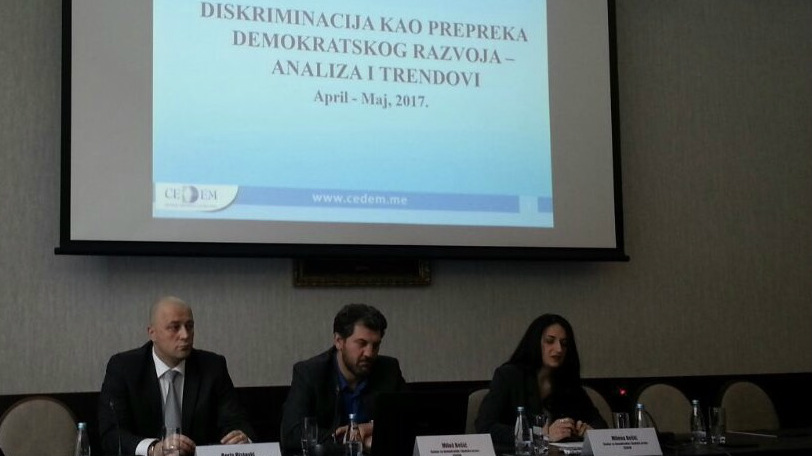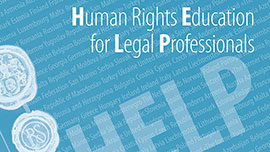Trust in the national institutions when it comes to the protection from discrimination has been on the rise in comparison to the 2015, and Ombudsperson’s Office has championed those efforts, according to the Human Rights Survey, that has been presented on 26th May and developed under the framework of the project “Support to the National Institutions in Preventing Discrimination in Montenegro” (PREDIM), co-funded by the European Union and Council of Europe, and implemented by the Council of Europe.
The survey has been implemented by the Centre for Democracy and Human Rights (CEDEM) and it supported the PREDIM partners, notably the Ministry for Human and Minority Rights, to assess the current state of the human rights reforms, citizens’ perception of discriminatory practices and institutional responsiveness to these problems and citizens’ complaints.
The survey found that 48.4% of citizens have trust in the public bodies’ protection from discrimination, which is a slight progress in citizens’ approval rate in comparison to 2015 (46.8%). This has been supplemented with concise information on the citizens’ perceptions of key public bodies in this area, positioning the Ombudsperson’s Office as the most effective protection mechanism against discrimination (51.3% citizens). The Ombudsperson’s Office has been one of the key Council of Europe’s cooperation partners, strongly benefiting from previous SOCCER and ongoing PREDIM projects. On the other hand, Parliament, national employment bureau and judiciary are still facing challenges in coping with public expectations when it comes to the fight against discrimination.
Prof. Dr. Milos Besic, Chief methodologist of the NGO CEDEM, provided also in depth socio-cultural situational analysis to the problems identified by the citizens in the separate analytical report. He noted that citizens perceive that greatest extent of discrimination exists in the area of employment. According to prof. Besic, the employment is one of the most socially sensitive areas including due to the rather high unemployment rate. “Employment is obviously a particularly sensitive area, according to citizens’ assessments, as the level of discrimination today has been increased in relation to 2015. Nowadays, alcompared to two years ago there is a lower level of discrimination in the area of education and healthcare, while in other areas the extent of discrimination today is at approximately the same level”. He also noted that the perception of discrimination on ethnic/racial grounds in Montenegro is on a significantly lower level in relation to the average in the European post-communist countries, and approximately at the level of other ex-Yugoslav and Western European countries.
According to the citizens, the strongest discriminatory practices are based on the political affiliation, i.e. people with different political opinions are the most discriminated group, exceeding older and people of different national and religious affiliation, as well as gender and sexual orientation. Discrimination by political affiliation is the most prominent and hardly prone to changes. The extent of discrimination is on the rise today in relation to the year 2015 by the criterion of religious affiliation, while, towards all other groups the extent of discrimination is on a more or less the same level as it was two years ago.
The survey also noted strong public support to the activities undertaken in fighting the discrimination against women and against people with disabilities, with 85% of citizens’ support for both causes. Most interestingly, the public support to the LGBT anti-discrimination efforts has increased in comparison to 2015 (from 34.2% to 40% of citizens supporting it).
Final Report - Human Rights Survey - Discrimination Patterns in Montenegro
Analytical Report - Human Rights Survey - Discrimination Patterns in Montenegro





